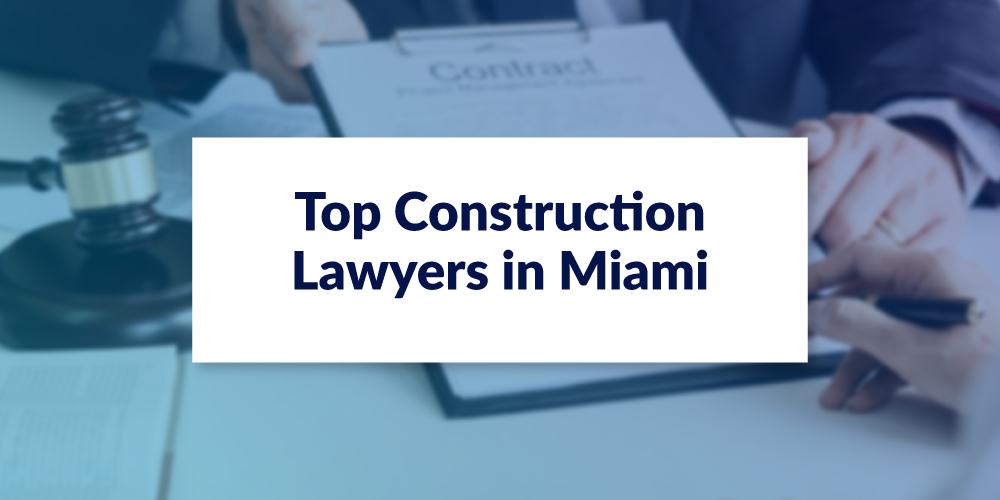Mechanics liens are powerful tools that help construction companies get paid the money they’re owed, but the rules and requirements that must be met in order to successfully file a lien can be challenging.
This challenge is multiplied by the fact that every state’s lien requirements are different. And sometimes, a single county recorder’s office within a state will have their own specific way of doing things.
Needless to say, keeping track of all these rules as they change from state to state and from county to county is quite a challenge (though here at Levelset, we do a pretty good job of staying on top of it). Keep reading for a list of 5 places in the country where the requirements that must be met in order to successfully file a lien are especially challenging.
Washington DC
On the Plus Side
Washington DC does have one thing going for it: mechanics liens can be electronically filed and recorded in the nation’s capital. It’s always a great thing when a jurisdiction allows for e-filing, as it can save a ton of time (and expense!) that would otherwise be needed if the lien claimant was relying on the USPS or some other delivery method.
On the Negative Side
Washington DC has some very particular requirements when it comes to providing additional, required information. In addition to all of the other required information, lien claimants in Washington DC must also provide
1. a copy of their Basic Business License from the Dept. of Consumer and Regulatory Affairs, and
2. a Certificate of Good Standing, also from the Dept. of Consumer and Regulatory Affairs.
Copying the information or printing something off of the internet is not sufficient – a copy of the original is required for both of these in order to have a valid mechanics lien claim.
Massachusetts
On the Plus Side
In Massachusetts, electronic filing is available for certain (but not all!) types of land, i.e., “Recorded Land.” Though this benefit is very limited in Massachusetts, we’re happy whenever e-filing is an option!
On the Negative Side
Massachusetts has a very unusual – and confusing – requirement in that a mechanics lien must be broken down into two different documents:
1. a Notice of Written Contract, and,
2. a Statement of Account.
Not only must these documents be filed separately, but they must be filed in that order. If you attempt to file the Statement of Account before the Notice of Written Contract, well then, you’re going to have problems.
Another difficult requirement is that Massachusetts will not electronically record documents that are classified as “Registered Land.” What’s the difference between “Recorded Land” and “Registered Land”? An easy way to determine whether or not your document is one or the other is to look at the deed. If there is a book and page number associated with your deed, it is most likely “Recorded Land” and is able to be submitted for filing/recording online. “Registered Land” must be sent directly to the county and is not eligible for e-recording.
Essential Reading
How to File a Massachusetts Mechanics Lien – A Practical Guide
Maricopa County – Arizona
On the Plus Side
Hooray for Maricopa County, as they’re another county that has electronic recording!
On the Negative Side
Maricopa County is (in our humble opinion) overly fastidious on the quality of documentation that’s required and accepted. There’s nothing unusual about claimants being required to include a copy of the written contract or proof of preliminary notices to go with their lien claim. In the case of Maricopa County, what’s unusual is that these documents need to be scanned at a minimum of 300×300 DPI (dots per inch) and cannot have any marking or shading on the scanned items! Also, the document cannot contain any font smaller than 10 pt. type. And last but not least, they won’t accept any documents that contain any images.
Orange County – California
On the Positive Side
Good news for Levelset customers – we use a courier service in Orange County, and this allows us to know if the lien was successfully recorded almost instantly (as the courier reports back to us).
On the Negative Side
Is the property you’re working on owned by a trust? Well then, in Orange County you better include all of the individual trustee information, since including just the name of the trust by itself will result in a rejected mechanics lien.
Fairfax County – Virginia
On the Plus Side
Fairfax County has firmly entered the 21st Century, so to speak: they have their own website to create a cover sheet and calculate fees in order to file a mechanics lien.
On the Negative Side
Well for starters, in order to create a cover sheet on the Fairfax County website, you have to use the Safari web browser. This is not simply a case of a picky website that won’t load or work properly — the barcode generated on the cover sheet will not be able to scan if the cover sheet is not created in Safari. Since only about 1 in 5 people use Safari, there’s an 80% chance that you’ll have problems using the website. But good luck, because the cover sheet is required.
Mechanics Liens – Powerful Tools, Complicated to Use
If you’re a contractor on a job and you’re having trouble getting paid, a mechanics lien (or a bond claim) can be just the tool you need to help with your payment issue. But given the power that these tools can wield (especially a mechanics lien claim, which can encumber and ultimately force the sale of property in order to satisfy a debt), it’s not surprising that these requirements exist. However, even though managing the requirements can be a challenge, mechanics liens and bond claims really do work.


